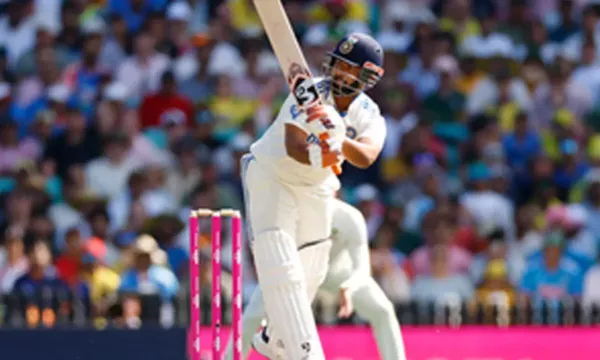
India was unable to fulfill its goal of winning three Test series in a row on Australian territory as Australia won the Border-Gavaskar Trophy in Sydney after a ten-year absence. India’s inability to reach the 200-run milestone six out of nine times during the trip demonstrated that their batting did not work as a unit.

With the exception of a few brilliant sparks from the willows of Nitish Kumar Reddy, KL Rahul, and Yashasvi Jaiswal, India’s batting lacked consistency, large scores, and partnerships. Rishabh Pant also had a difficult trip, as did captain Rohit Sharma, Shubman Gill, and Virat Kohli (barring the hundred in Perth).
The underwhelming batting display in Australia was a continuation of the skepticism of India’s ability to perform well under pressure, particularly after their 3-0 home loss against New Zealand.
Sunil Joshi, a former spinner for India who served as the team’s top selector during their 2-1 series victory in the 2020–21 tour, bemoaned the team’s batting shortcomings in their 3–1 loss to Australia.
“The batters must accept responsibility, even if it’s difficult to do so. Naturally, the coaching staff must know how to interact with the players, whether it is in a subtle or difficult approach. We must recognize that it is a bitter pill. Each player on that trip is aware of the significance of representing India.
“They always want to give it their all, but sometimes that may not be possible. Therefore, the players must be informed of what they need to do to improve their patience and make little adjustments to their skill levels and methods. In my opinion, there has been no difference in the dismissals of our top six hitters over all five Test matches.
“The dismissals seemed to be comparable, and I’m not claiming that even the Australians left in the same manner. However, the alliances they established and the top order’s repeated acceptance of responsibility made it evident how different we were from the Australians. In an exclusive interview with IANS, Joshi said, “We also need to look at our fielding, since it was an area of worry.
All-rounders were selected more for their batting skills than their bowling capabilities, which was another contentious issue. Joshi said that India ought to have chosen to use five suitable bowling alternatives in Australia and reiterated how bowlers were under greater strain when batting did not perform well there.
“You need five bowlers to win a Ranji Trophy, whether you’re playing in India or abroad. You cannot use four bowlers, and in my opinion, you need five good bowlers who can win Test matches for you by taking 20 wickets if your six and seventh or eighth batsmen aren’t going to score runs.
“Bumrah bowled more over 150 overs in the five Test matches, which shows how much burden he had. His efficacy may have been much higher if his load had been lowered to perhaps 60 or 65 overs. It has always been Bumrah in this series; even in the most recent Test match, Bumrah was forced out (due to back spasms), and we looked completely normal.
It’s the toughest away trip to play in Australia, so you have to be absolutely on top of your game. Bumrah walked out for a short while in one of the earlier Test matches, and if my memory serves me well, he returned with luck. His niggles were a worry for everyone, and because he is stretching, they are inevitable. He is a human person as well, and he gives every ball he bowls his best because it works.
“I’m not arguing that hitters or bowlers are to blame; the whole team is accountable. Accept that they lost the series because they didn’t perform properly as a team. There’s no use in identifying someone. It was necessary for the top six hitters to score and contribute runs to the scoreboard. Then, you are the only one who permits your bowlers to claim 20 wickets. It’s difficult for the bowlers as well if you’re not getting runs in the top up front,” he remarked.
Joshi said that the batsmen’ inability to bat for extended periods of time also contributed to the Indian bowlers’ recuperation during their tour of Australia. Throughout the series, you can see how often the bowlers and bowling unit were on the ground. Did they receive enough sleep for two days? No. Every day or for one and a half days, they were almost bowling on the ground. You can’t bowl with that intensity every one and a half days if you’re bowling 15, 17, 18, or 20 overs because your body won’t recuperate on the field.
“That’s because you’ll also be fielding for ninety overs, which will put a lot of strain on their bodies. Our batsmen had to score runs and bat for 90, 120, or 140 overs if you wanted to keep them fresh. They would have scored more than 400 runs if it had occurred, and that was lacking,” he said.